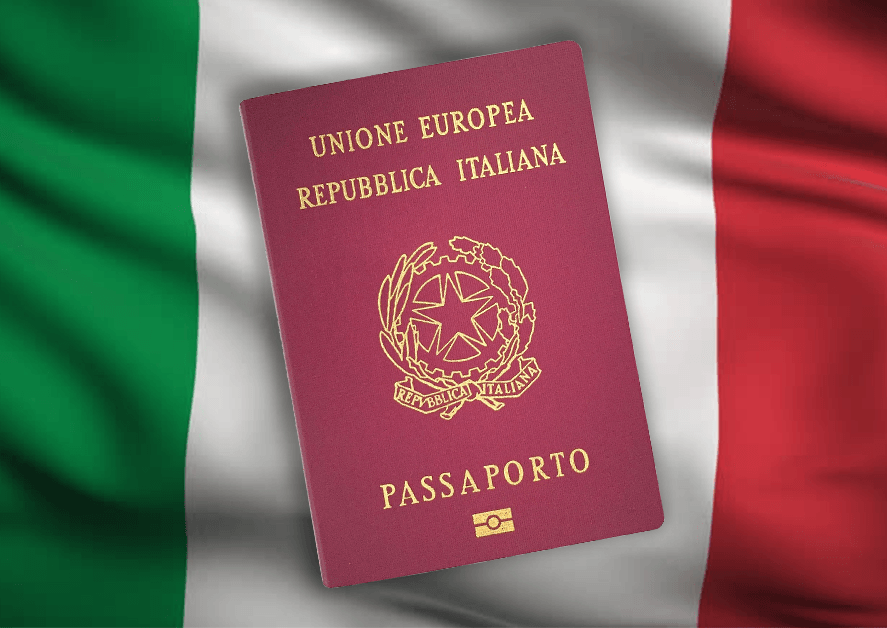The process and documents required for obtaining Italian citizenship are different depending on the circumstances through which you are trying to obtain it. The standard documents that will be required for any of these processes in Italy are:
- valid passport, meaning that it has not expired and will not expire within the next six months;
- residence permit (permesso di soggiorno) if living in Italy, as proof that you have been living in Italy legally;
- a certified copy of your birth certificate with an apostille, as agreed upon under the Hague Convention. The apostille is issued by government officials and verifies that the document or forms carries legal weight within the country it was issue in;
- criminal background check certificate, issued by the state government of your home country;
- Italian language certificate from an approved program or school.
Knowledge of the Italian language is now required by law: granting Italian citizenship (see articles 5 and 9 of Law 91/1992) requires that the interested party display an adequate level of Italian at a B1 proficiency—in accordance with the Common European Framework of Reference (CEFR)—proved by passing an official exam. With the exception of the passport, all documents must be translated into Italian and carry the apostille. Let’s have a look at the different ways that someone can gain citizenship.
There are five ways foreigners can acquire Italian citizenship, each within the scope of Law 91/1992:
1. Citizenship by Marriage (article 5 of Law no. 91/1992)
The foreign spouse of an Italian citizen may apply for Italian citizenship 2 years after the marriage if the couple is living in Italy or after 3 years of marriage if they’re living abroad. These time frames are halved if there are children born or adopted by the married couple. This same provision, under EU law, provides for civil partnerships.
Check about this, the article related to obtaining the Italian citizenship for a spouse.
2. Residence in Italy (article 9 of Law no. 91/1992)
This one has only a few requirements: be legally resident in Italy for at least 10 years, present your original birth certificate with apostille and translation into Italian along with a criminal background check—also in the original with both apostille and translation into Italian—and a payment of 250 euros. That being said, it can take up to 4 years for the paperwork to be processed.
Several other categories of people may apply via this route including stateless persons or refugees who have been living legally in Italy for at least 5 years, foreigners who were adopted by Italiancitizens and living in Italy, again, for at least 5 years, and foreigncitizens employed by the Italian government.


3. Recognition of Italian citizenship by descent (article 1 of Law no. 91/1992)
Any claim for Italian citizenship must be supported by documentary evidence. The documentation required for this process can be quite complex as it will require a lot of certificates, translations, copies and official stamps, for all persons that are part of the Italian lineage up to and including yourself.
● 2 copies of the Certificate of Evidence of Resident Status (both original and photocopy);
● Certificate of Naturalization (both original and photocopy);
● 3 copies of the Birth Certificate;
● 3 copies of the Marriage Certificate;
● Divorce Certificate (if applicable);
● Death Certificate (if applicable).
Once the relevant documents have been produced to this Consulate General, they will be forwarded to the competent Italian Municipality for registration. Therefore a waiting period between 2 and 8 weeks should be expected. Once the procedure has been concluded, applicants will be notified via email about the certificate of Italian citizenship.
4. Law under some circumstances (article 4 of Law no. 91/1992)
This one follows from the previous case. There are a number of other requirements that have to be met. The question to ask is “are you the son, daughter, grandson or granddaughter of an Italian citizen by birth,” and you meet just one or more of three categories: first, you have done military service as part of the Italian armed services, second, you’ve been employed as part of the Italian government, and/or third, you’ve been resident in Italy for your 18th birthday and two years afterward uninterrupted. In any case, it is necessary to declare your wish to become an Italian citizen.
5. Maternal or paternal recognition (article 2 of Law 91/1992)
If a child of legal age is acknowledged by an Italian national and the child declares to elect Italian citizenship within one year of the recognition, he or she may be granted citizenship. In this case, it is necessary to have the birth certificates of all the persons involved.
Note:
It is important to remember that when dealing with the Consulate in your region that they are able to request additional documents that are not part of the official list, in case of any discrepancy or for further clarification. This is completely at the Consulate’s discretion.
These processes can be quite complex and, if you have questions, it is best to contact the proper authority.
Do you enjoy our article? Consider reading also our posts about dual citizenship Italian and American ones, Italian citizen taxes, becoming an Italian resident, and Italy’s residence visa.




